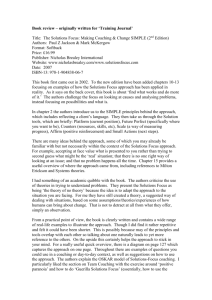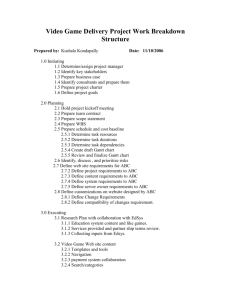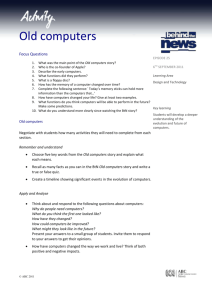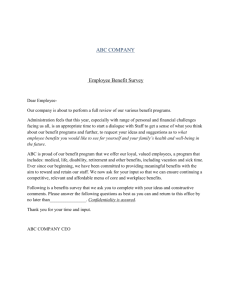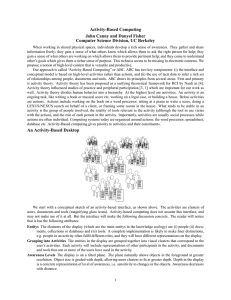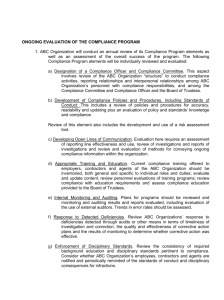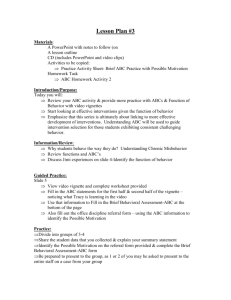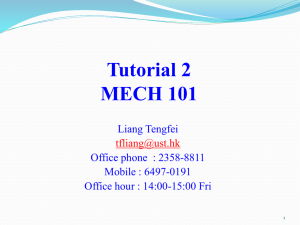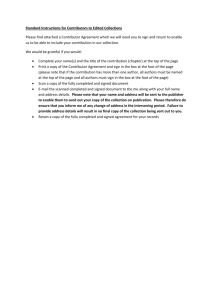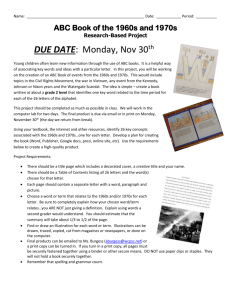HRM/OB Exam Questions: Sample Questions & Scenarios
advertisement
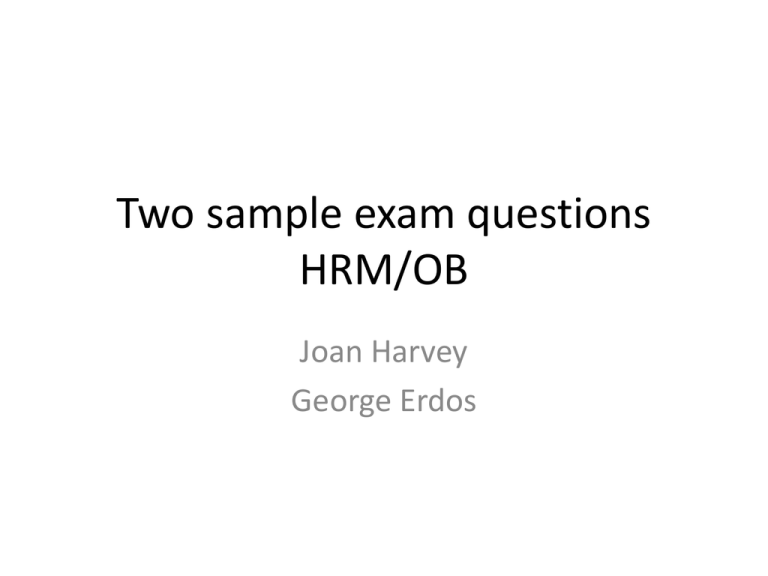
Two sample exam questions HRM/OB Joan Harvey George Erdos • We include two examples of longer questions. In these, we have highlighted in bold the salient words. • There follows two examples of shorter questions. First example longer question 1 The company that you work for is a multi-national book publisher ABC, publishing mainly childrens' books. You are currently based in its office in Prague and are in charge of a small team of 5 people whose task is to find new authors that are good enough to develop for ABC's increasing list. Your team has to find novel ways of locating potential authors, assess their capabilities and establish their development needs once they are contracted to ABC. This is likely to entail periods of time when your team are not in the office, are traveling or meeting people; it is also likely to involve developing a communications plan for reaching potential authors. You have been told that if your team is successful, there will be promotion for you as well as for team members, but if the team is unsuccessful, then you will be redeployed elsewhere at ABC in a junior position. What are the challenges in this for you as a manager? How will you motivate your team to develop innovative ways of bringing in new authors? How will you maintain control of the work situation when your team members are not usually all together in the office? Use the theories of motivation, leadership, teamworking, communications and any others you deem appropriate to answer these questions. Second example longer question 2 You work as a manager in an accounts department that is going to change its technology to move away from traditional paper-based systems to one based entirely on IT. Your department is responsible for all customer billing, invoices and payments and you are responsible for 20 people there. It is likely that there will be quite a lot of resistance to the whole change by staff who have been operating successfully for many years using the ‘old’ methods. The new systems require retraining of your staff and some restructuring of jobs to rationalize the work and tasks involved. You welcome the changes personally as you can see that the future will require much more use of IT, although you can see that it may be less of an advantage in the short term; indeed, unless more business is brought in, then your department will actually be over-staffed once the new technology is fully operational. Use the theories of management of change, learning and remembering, culture and structure, motivation and any others that you consider appropriate to consider the training and job design issues involved in this case; how would the change strategy be designed to minimize resistance? Third and fourth examples: shorter questions 3 As a younger graduate manager, employed to manage a team of 30 experienced workers older than yourself, what are the main motivation issues that you expect to face, and how might you resolve them? 4 What are the main issues to be faced when planning and implementing a change programme, such as one where an old production method is to be closed down and replaced by a new method?

